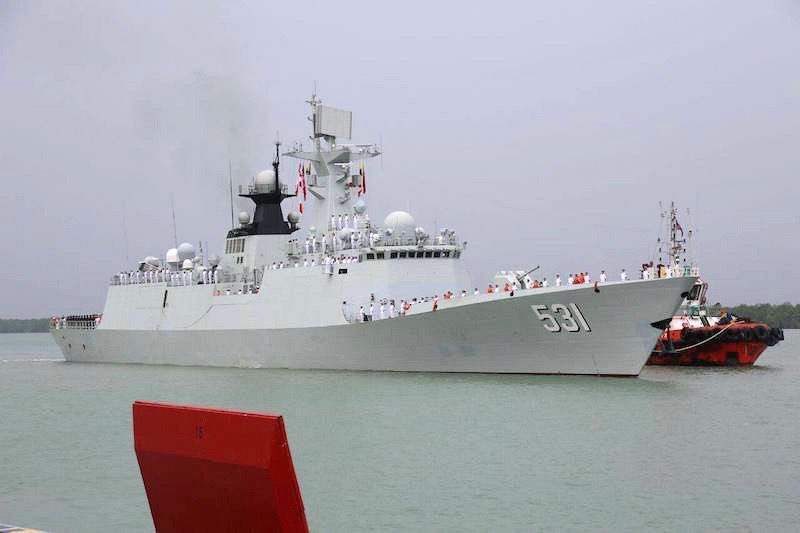File photo: Royal Malaysian Navy
By Chris Blake and Shamim Adam
(Bloomberg) — Malaysia said it will buy at least four Littoral Mission Ships from China as Prime Minister Najib Razak announced “new steps” in military cooperation between the two countries.
Najib oversaw the purchase of the vessels on Tuesday during a state visit to Beijing. While no details were released on the value of the ships, the deal comes after Malaysia recently announced that it was cutting its defense budget by 13 percent.
“Now we have agreed the first significant defence deal between our two countries, with Malaysia purchasing littoral mission ships from China,” Najib said Wednesday in an editorial published in the China Daily newspaper. The first two will be built in China and the next two in Malaysia, with further Malaysian-built ships subject to government financing, he said.
A key security partner of the U.S., Malaysia undertook its first bilateral military exercise with China two years ago amid increasing uncertainty over Beijing’s territorial ambitions in the South China Sea. China’s claims to more than 80 percent of the waters that host around $5 trillion of trade a year were rebuffed by an international court in July. China has been Malaysia’s largest trading partner since 2009, with two-way trade last year valued at $86.3 billion.
Purely Economics
Nearly two years since Najib enjoyed a cozy round of golf with U.S. President Barack Obama, the two leaders’ close relationship was shaken in July by a U.S. Justice Department bid to seize $1 billion linked to alleged money laundering involving a Malaysian state fund known as 1MDB. In civil filings the department alleged a broader $3.5 billion misappropriation from the fund whose advisory board was formerly chaired by Najib.
Still, the decision to purchase ships from China was likely based on cost alone, with Chinese naval systems being significantly cheaper — sometimes one-third of the cost — of similar systems from the West or South Korea, said Jon Grevatt, a defense industry analyst at IHS Jane’s in Bangkok.
“I don’t think for a second that it’s anything against the U.S.,” he said. “It’s purely down to economics and China was able to offer something to Malaysia that was a lot cheaper than anyone else.”
China would probably also offer the vessels at a very attractive rate that would likely not include full upfront payment, Grevatt said. Still the deal is significant in that Malaysia isn’t currently operating any naval vessels from China and its only other major defense system from China is the FN-6 portable surface-to-air missile, he said.
Defence Minister Hishammuddin Hussein said technical details on the vessels haven’t been finalized, according to a report in the New Straits Times.
© 2016 Bloomberg L.P

 Join The Club
Join The Club











